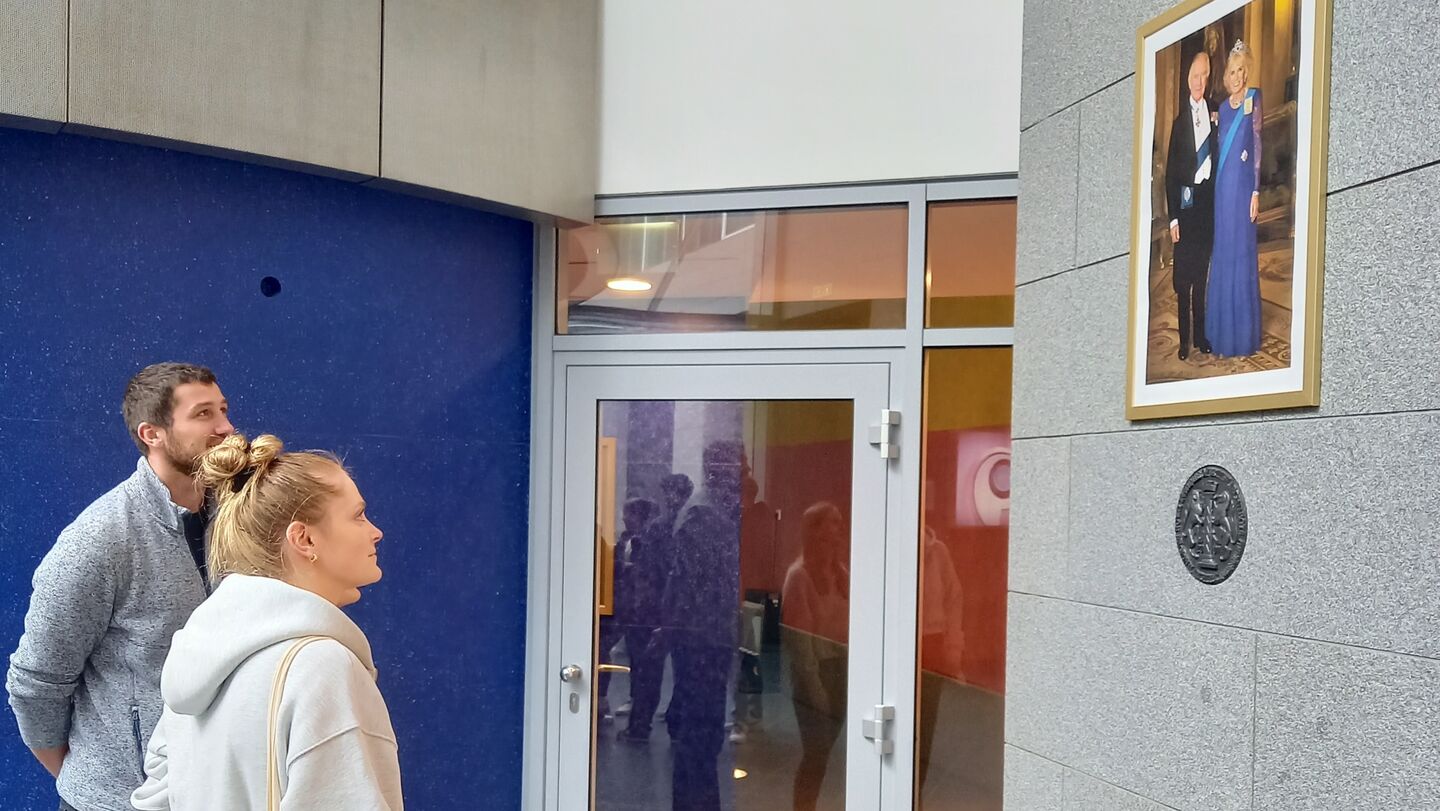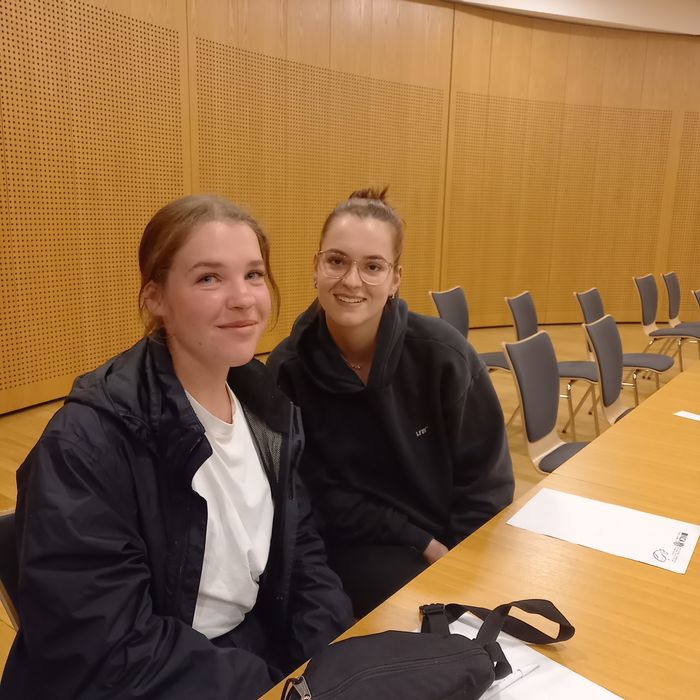Excursion to the British Embassy in Berlin
A field trip to exchange information about police work in Germany and the United Kingdom.

On Thursday July 27, 2023, my class taught by Dr. Jobatey visited the British Embassy. In the course of the round-table discussion, four high ranking liaison officers at Embassy presented their field of expertise to us, as well as giving us insight into differences and communalities between British and Berlin police work.
When we arrived, we were already greeted by our hostess after the security check. After a few photos and a short walk through the large embassy building, we entered the meeting room. There we were received very hospitably by four high-ranking officials of the embassy. There were refreshments and snacks as well as a sheet and pen for everyone to take notes.
In the following they gave us an introduction about their work in the embassy and already pointed out differences to Berlin police work. While they started, we learned that they worked in different areas of crime. One representative of the National Crime Agency was originally an intelligence analyst before he switched to operational work a few years ago, and is now very much involved in combatting organized crime and child sexual abuse. His colleague, on the other hand, was a crime investigator and now works in the National Crime Agency on organized crime and child sexual abuse. Further on in the introduction, we learned about another liaison officer who also started out as a crime investigator and now works on tax fraud cases at HM Revenue and Customs. He even told us that in the course of his work he cooperates with the LKA and Customs, services, also internationally with countries such as Lichtenstein or the Czech Republic. Lastly, the fourth liaison officer introduced himself, as he deals with immigration and crimes related to it. It was also interesting that he used to be a prison guard, so he had a similar function as a police officer, which gave us a better connection to him.

Photo: Francine Jobatey
Now to some differences between German and British police work: We quickly learned that policing in the U.K. takes place under more relaxed supervision in some respects when compared to Germany. There is no comparable public prosecutor's office that has to approve many measures taken by German police officers, which gives police officers in the UK more rights, more room for maneuver and more decision-making power overall. On the other hand, they do not carry handguns, unlike German police forces. This made us wonder at first, but our hosts quickly explained that this was not really necessary, because most conflicts are solved with communication and social skills. If, however, a unit equipped with weapons should be needed, this can be requested quickly and after a few minutes it would be on the scene. So the police officers in the UK are actively trained to speak respectfully, directly and appropriately in order to bring situations under control and de-escalate them. We as police students in Berlin learn this as well, but only secondarily and with a focus on weapons and combat training.
Finally, we asked which security problem is the biggest from the experts' point of view in the UK. After their deliberations, they named organized crime, followed closely by terrorism. Terrorism affects fewer people overall than organized crime, but it entails a stronger media presence.
After one-on-one conversations and a group photo, our visit ended in the British Embassy, from which we took a lot. For this experience we, as class S 3/6 (Higher Police Service B.A) of the HWR Berlin (Berlin School of Economics and Law), would like to thank all those responsible for making this possible.